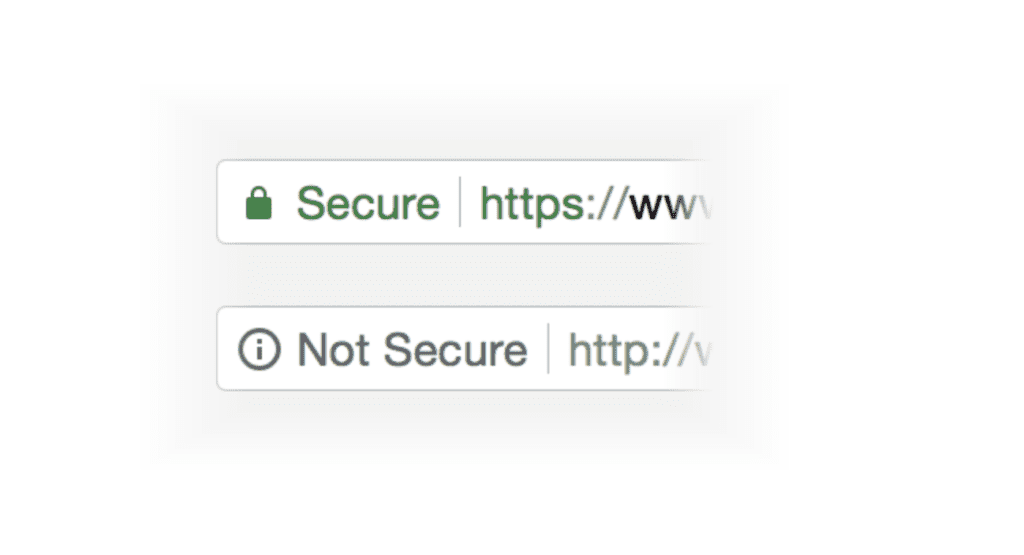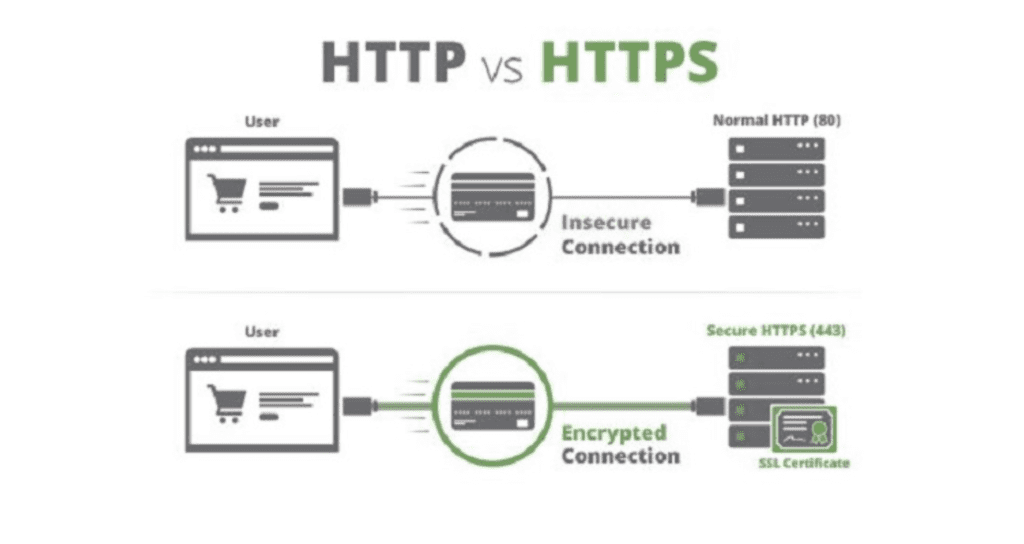In this blog post, I will show why you should be using Cloudflare with your WordPress website. There are many benefits and reasons why but before we get into that, let’s start with the basics… What is Cloudflare?
What is Cloudflare?
Cloudflare is a company that provides security, performance, and reliability services for websites and online applications. Cloudflare operates as a content delivery network (CDN) and offers a range of services, including DDoS protection, web application firewall (WAF), secure sockets layer (SSL) encryption, and content optimization.
By using Cloudflare’s services, websites can improve their speed, security, and reliability, while also reducing their bandwidth costs. Cloudflare operates a global network of data centers that cache website content and deliver it to users from the data center closest to them, reducing latency and improving performance.
Cloudflare also provides DNS (Domain Name System) services, which allow users to translate human-readable domain names (like www.mobilegiant.net) into IP addresses that computers can use to access websites. Cloudflare’s DNS services are designed to be fast, secure, and reliable, and can help protect against DNS-based attacks like DDoS and DNS cache poisoning.
Overall, Cloudflare is a popular choice for website owners looking to improve their site’s performance and security, as well as for businesses looking to protect their online assets from cyber threats.
What is a DDoS attack?
A Distributed Denial of Service (DDoS) attack is a type of cyber attack in which a large number of compromised devices (such as computers, IoT devices, or servers) flood a website or online service with traffic, overwhelming the server and causing it to crash or become unavailable.
In a DDoS attack, the compromised devices are often part of a botnet, which is a network of devices that have been infected with malware and can be controlled remotely by the attacker.
The goal of a DDoS attack is typically to disrupt the normal functioning of a website or online service, causing inconvenience for its users or even causing financial damage to the organization running the service. DDoS attacks can also be used as a diversionary tactic to distract security personnel while other types of cyber attacks are carried out.
To protect against DDoS attacks, many organizations use services like Cloudflare that can help detect and block malicious traffic before it reaches the server. These services can use a range of techniques to identify and filter out traffic that is part of a DDoS attack, while allowing legitimate traffic to pass through.
how does cloudflare work?
Cloudflare works as a reverse proxy and content delivery network (CDN) that sits between your website’s visitors and your web server. Here’s a general overview of how it works:
- When a user visits your website, their request is first routed to the nearest Cloudflare data center.
- Cloudflare’s network analyzes the request and determines if it’s a legitimate request or if it’s potentially harmful (e.g., a DDoS attack). If it’s deemed harmful, Cloudflare blocks the request before it reaches your server.
- If the request is legitimate, Cloudflare’s CDN caches your website’s content (such as images, JavaScript files, and CSS files) in its data centers around the world.
- When a user requests your website’s content, Cloudflare delivers it from the nearest data center, reducing latency and improving page load times.
- Cloudflare also offers a range of security services, such as a web application firewall (WAF) and DDoS protection, to help protect your website from cyber threats.
- Cloudflare also provides DNS management services, which can help simplify the process of managing your website’s domain name system (DNS) settings.
Cloudflare’s services help improve the performance, security, and reliability of your website, while also potentially reducing your hosting costs by offloading bandwidth and processing to Cloudflare’s network.
How Cloudflare Can Improve Your Site Performance
What are the benefits to using Cloudflare for your website?
- Improved website performance: Cloudflare’s content delivery network (CDN) can help improve the speed and performance of your website by caching content and delivering it from a data center that’s closest to the user. This can reduce the load on your server and speed up page load times.
- Increased website security: Cloudflare provides a range of security services, including DDoS protection, web application firewall (WAF), and SSL encryption, that can help protect your website from cyber threats.
- Reduced hosting costs: By using Cloudflare’s CDN, you can reduce your website’s bandwidth usage, which can help save you money on hosting costs.
- Better uptime: Cloudflare’s global network of data centers can help ensure that your website stays online even if your hosting provider experiences downtime.
- Simplified DNS management: Cloudflare offers DNS management services that can help simplify the process of managing your website’s domain name system (DNS) settings.
- Analytics and insights: Cloudflare provides analytics and insights into your website’s performance and security, allowing you to make data-driven decisions about your website.
Does Cloudflare offer free ssl certificates?
Yes, Cloudflare offers free SSL certificates for all of its users, including those on the free plan. When you sign up for Cloudflare, you can enable SSL/TLS encryption for your website with just a few clicks. Cloudflare offers two SSL/TLS options:
Full SSL: This option encrypts traffic between the user and Cloudflare’s servers, as well as traffic between Cloudflare’s servers and your origin server. To use Full SSL, you need to have an SSL certificate installed on your origin server.
Flexible SSL: This option encrypts traffic between the user and Cloudflare’s servers, but not traffic between Cloudflare’s servers and your origin server. You don’t need to have an SSL certificate installed on your origin server to use Flexible SSL.
Both Full SSL and Flexible SSL are available for free, and you can enable them in your Cloudflare account settings. Additionally, Cloudflare offers a range of other security features, such as a web application firewall (WAF), that can help further protect your website and keep your visitors safe.
What is an SSL Certificate?
An SSL (Secure Sockets Layer) certificate is a digital certificate that encrypts data that’s transmitted between a user’s browser and a web server. All websites should have an SSL certificate installed. When a user visits a website that has an SSL certificate installed, their browser will establish a secure, encrypted connection with the server, which helps to protect their sensitive information, such as passwords and credit card details, from being intercepted by attackers.
SSL certificates work by using a cryptographic key to encrypt the data that’s transmitted between the browser and the server. The certificate contains information about the website’s domain name, the company or organization that owns the website, and the certificate’s expiration date. When a user visits a website with an SSL certificate, their browser will check the certificate’s authenticity, and if it’s valid, the browser will establish a secure connection with the server. Below is an image of what they will be seeing when they visit a website with an SSL Certificate vs no SSL Certificate installed.

SSL certificates are essential for websites that handle sensitive information, such as e-commerce sites or online banking sites, but they’re also becoming increasingly important for all websites, as they can help protect users’ privacy and build trust with visitors. Many web hosting providers offer SSL certificates for free or at a low cost, and there are also third-party providers, such as Let’s Encrypt, that offer free SSL certificates.

do i need an ssl certificate on my website?
Yes, it’s highly recommended that you have an SSL (Secure Sockets Layer) certificate installed on your website. There are several reasons for this:
Protect user data: SSL encryption ensures that any data that’s transmitted between a user’s browser and your web server is secure and cannot be intercepted by attackers. This is particularly important if your website handles sensitive information, such as login credentials, credit card details, or personal information.
Boost SEO: Search engines like Google consider SSL encryption as a ranking factor, meaning that websites with SSL certificates are more likely to rank higher in search results. This can help increase your website’s visibility and attract more visitors.
Build trust with visitors: When visitors see that your website has a valid SSL certificate, they know that their data is secure and that your website can be trusted. This can help build trust with your visitors and encourage them to engage with your website.
Keep up with industry standards: As internet security threats continue to evolve, SSL encryption has become a standard practice for websites. By installing an SSL certificate, you’re keeping up with industry standards and best practices.
In summary, having an SSL certificate is essential for protecting your users’ data, boosting your website’s SEO, building trust with your visitors, and keeping up with industry standards. Many web hosting providers offer SSL certificates for free or at a low cost, so it’s easy to obtain and install one on your website.
Getting started with Cloudflare
As you can see, there are many reasons why you should be using Cloudflare with your WordPress website. If you need help getting started with Cloudflare to improve site performance and enhance your website security, feel free to reach out to use. Even the FREE plan with Cloudflare is a must! Let our web support experts help get you set up with Cloudflare.
The process is simple and should take about an hour for most sites. Click the button below to purchase a web support credit to get started with Cloudflare today!


